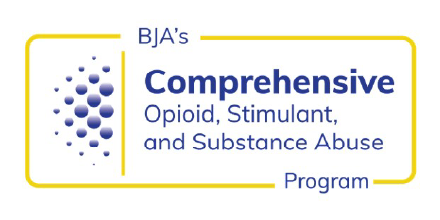Transforming Systems Court-Based Interventions Opioid Courts
Overview
Effectively treating opioid use disorder (OUD) and preventing overdose requires a collaborative approach across systems. Opioid Courts are an opportunity to address this public health crisis and prevent overdose deaths by rapidly linking participants to evidence-based treatment, including medication-assisted treatment (MAT) and other recovery support services.
New York State opened the country’s first opioid intervention court in Buffalo in 2017. Created to save lives, the Buffalo Opioid Court relies on day-of-arrest intervention, evidence-based treatment, daily judicial supervision, and wrap-around services to prevent overdose death. The initial interview, arraignment, bio-psycho-social screening, and transfer to treatment are completed within 24 hours of arrest.
The Opioid Court model is a pre-plea, voluntary model that provides medical triage for any offender at high risk of overdose. Upon stabilization, defendants can continue into a treatment court if they have significant legal leverage, pursue a disposition, and receive encouragement to remain engaged in treatment and recovery support services.
Resources
- Jul 2021
- Center for Court Innovation
- Center for Court Innovation
- Apr 2022
- Bureau of Justice Assistance (BJA) Comprehensive Opioid, Stimulant, and Substance Abuse Program
Funding
Below is a list of funding opportunities that have been previously available from federal and private funding sources. Please note that although the funding deadlines may have passed, they can still be reviewed and considered for future planning purposes. You can check back often on the Announcements page for current funding opportunities as they are announced.
Comprehensive Opioid, Stimulant, and Substance Abuse Site-based Program
Technical Assistance
Many federal agencies and other partners offer assistance, in addition to grant funding, to jurisdictions, agencies and stakeholders to address training needs or the need for subject matter expertise to address local issues or challenges. Through these resources, you can access recent publications, tools, often request one-on-one remote or offsite assistance. Examples of assistance can include time with trainings, consulting time with subject matter experts, and/or opportunities for connecting with peers doing similar work.

Comprehensive Opioid, Stimulant and Substance Abuse Program Training and Technical Assistance
The COSSAP training and technical assistance (TTA) program offers a variety of learning opportunities and assistance to support BJA COSSAP grantees and other local, tribal, and state stakeholders to build and sustain multidisciplinary criminal justice responses to illicit substance use and misuse. Training and technical assistance is provided in a variety of formats, including virtual and in-person training events, workshop and meeting presentations, and online resources. TTA deliveries are provided to requestors free of charge. You can request assistance here.